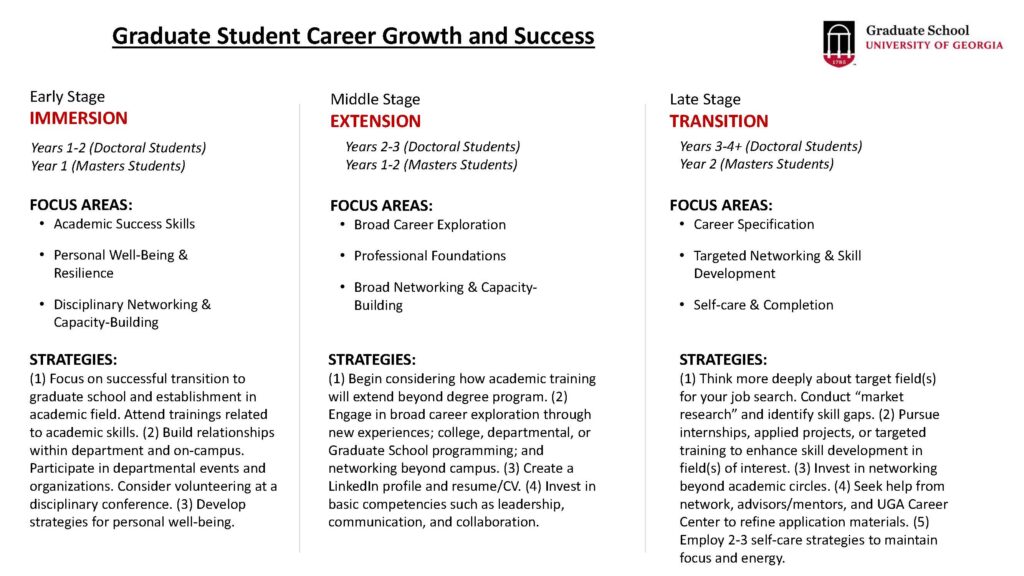Understanding Your Career Development Journey
There is no single model of success for graduate student career planning. We recommend thinking about your career development journey through the concepts of Immersion-Extension-Transition as shown in the chart below.

Resources for Career Exploration and Preparation
Beyond the Professoriate: A self-paced career exploration platform for PhD students, including modules on faculty and non-faculty careers and job searches. Log in here with your UGA credentials.
Interstride: A portal with career resources for international students and other international job-seekers. Includes webinars, job postings, and information about navigating visa / sponsorship issues. Log in here with your UGA credentials.
UGA Career Center Graduate Student Resources: From exploration to application the UGA career center has a wide variety of resources for whatever stage you are at in your process.
Creating An Individual Development Plan: Jump start your career planning by using one of these resources to assess your career related skills, interests, and values and learn more about potential careers that are a great fit for you.
- ImaginePhD– a platform featuring assessment tools challenge students to reflect on their interests, skills, and values to produce job families that might fit their interests, skills, and values.
- ChemIDP – a platform for chemical scientists that assesses skills values, enhances marketability, sets goals, and more!
- myIDP– a platform feature discipline-specific tools that help those in science careers develop individual career development plans.
Campus Internship Program: Each summer, the Graduate School funds internship opportunities for doctoral students in the arts, humanities, and social sciences. Previous placements have included positions in communications, university outreach, instructional support, and higher education administration. More information will be distributed via email in December or January each year.
